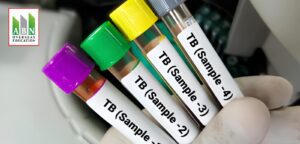Many students want to study abroad, and Germany is now one of the best places for international students to do so. Germany has everything an ambitious student might want: top-notch universities, a cheap education system, and chances to work and stay after graduation. AbnEducation assists students through this journey one step at a time, making it easy and stress-free. But what is the best way to study for an undergraduate degree in Germany? This guide will tell you everything you need to know about expenses, scholarships, visas, and student life, as well as who may apply and what it costs.
Step-by-Step Application Process
Applying to German universities can feel overwhelming at first, but if you follow the process carefully, it’s much easier than you think. AbnEducation provides personalized guidance to simplify each step.
Researching Universities and Programs
Your first step should be identifying the right course and university. Germany has over 400 higher education institutions, so options are endless. Check official portals like DAAD (German Academic Exchange Service) to compare programs, tuition, and entry requirements or let AbnEducation help you shortlist the best-fit universities.
Using Uni-Assist and University Portals
Most German universities accept international applications via Uni-Assist, a centralized application service. Some universities, however, ask students to apply directly through their own online portal. Always check the official admission page of your chosen institution. With AbnEducation, you’ll never miss an important detail.
Required Documents for Application
While the exact requirements differ, these are the most commonly requested documents:
- Certified copies of your school-leaving certificate
- Proof of language proficiency (German or English)
- Passport copy
- Motivation letter
- Curriculum Vitae (CV)
- Recommendation letters (if required)
- Application fee payment proof (if applicable)
Types of Undergraduate Programs in Germany
German universities offer a wide range of undergraduate programs. Knowing your options helps you choose the right path. AbnEducation advisors can help match your career goals with the right program.
- Bachelor of Arts (B.A.) – humanities, social sciences, arts
- Bachelor of Science (B.Sc.) – science and technical fields
- Specialized Degrees – engineering, medicine, law
Eligibility Criteria for Undergraduate Studies in Germany
Before you apply, you must ensure you meet the eligibility requirements set by German universities. With AbnEducation expert guidance, students can ensure they meet all criteria without confusion.
- Academic Qualifications – recognized school-leaving certificates (A-Levels, IB, etc.)
- Language Proficiency – German (DSH, TestDaF) or English (IELTS, TOEFL)
- Entrance Exams – for medicine, dentistry, or engineering (if required)
Language Requirements for Studying in Germany
Language is often the biggest concern for international students, but AbnEducation helps students prepare for both German and English programs.
- German-Taught Programs – DSH, TestDaF
- English-Taught Programs – IELTS, TOEFL
Tips for a Successful Undergraduate Journey in Germany
Here are some practical tips from AbnEducation to make your experience smoother:
- Start Applications Early – at least 6–9 months in advance
- Network with Other Students – alumni and student communities
- Manage Finances Wisely – budgeting for living costs
Conclusion
Studying for an undergraduate degree in Germany is a chance to get a world-class education, improve your professional chances, and learn about other cultures. Germany is a great place for students to go since it has little or no tuition rates, degrees that are recognized around the world, and a lot of subsidies.
AbnEducation makes the whole process easier and more dependable, from picking a university to moving to Germany. Start early, stay focused, and enjoy the ride. You’ll be stronger, more skillful, and ready for opportunities around the world.





















